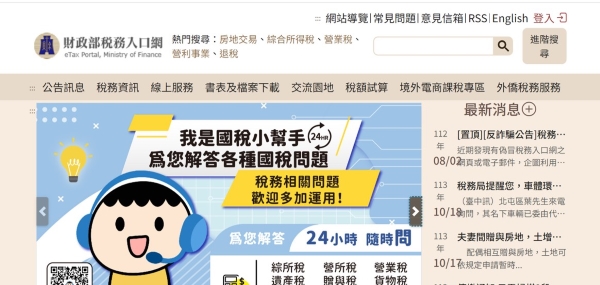Author: Lin, Zhou-Xi (Fonder of SEAMi, South East Asia Migrant inspired)
The outbreak of coronavirus (COVID-19) at the end of 2019 spread rapidly all over the globe. Countries blocked their borders, grounded planes and blocked boats which brough great impacts on humans’ live. The block of national borders also disrupted the way for immigrants to return their home. Today, people are excitedly looking forward to traveling abroad after the borders have opened. While the new immigrants whose hometown is abroad are supposed to be happier, after hearing the stories of several new immigrants, it seems that after the pandemic, they are facing new difficult life issues, there is a different level of melancholy that has never been felt in their hearts.
The road back home is now open once again, and the anticipation of going has now became pressure that multiplied.
Kim from Ho Chi Minh City, whose parents passed away at the beginning and in the middle of last year respectively. The border of Taiwan then was not open yet, so she could only contact with her family through video calls, comforted the family with tears in the distance. "When I heard that they were sick, I was anxious in Taiwan. I finally got a flight this summer and have the opportunity to apply to go return home, but I have never thought that going home this time is the beginning of not wanting to go home in my life."
Mei, a new immigrant from Vietnam, also stated that the pandemic has changed her relationship with family. She has been in Taiwan for 18 years and never thought that one day she would have the idea of not wanting to go home. "The pandemic made my family's life very difficult, and my younger brother is unemployed. My work in Taiwan is also affected, and my income is limited. There are not as many helps I could do to the family as before."
Mei returned to hometown this year. Last time when her mother had passed away, Vietnam was under strict control. This time when her father passed away, she must return for the funeral and visiting family. "This time I had no money, and I didn't buy any gifts. My relatives and neighbors looked very unhappy. Everyone is waiting for you to bring them benefits. It seems that Taiwanese people don't understand this kind of pressure, because we have been educated since childhood that children are obligated to help the family which is difficult for us to explain the pain.”
Kim also said: "After my parents passed away, the family members discussed the inheritance, which suddenly seemed to have nothing to do with me. Said that I had married to a foreign country. The house and car at home were bought with the money saved from my work in Taiwan, but now I cannot even express my opinion.”
Zhen from East Java, Indonesia also expressed helplessness: "I still want to go back if my parents are alive. If not, I will stay in Taiwan. I have relatives there but there is no reason for going back. After the divorce, children are my only family in Taiwan. Sometimes it feels like it's not right to be there in Indonesia or here in Taiwan."
The disruption and transformation of the relationship between immigrants and native families
"The impact of the pandemic seems to be only two or three years, but many elderly relatives in our village passed away, so did my parents. In Taiwan, the pandemic was not very serious, and I don't feel the fear of relatives passing away one by one. While being notified of relatives passing away respectively it’s like telling me that ‘you don’t need to come back.’ I got my ID card, and when I got divorced, my husband told me to go back to Indonesia, and I felt that neither Indonesia nor Taiwan did not welcome me.” Zhen said.
Mei also said: "When I finished the job in a factory in Taiwan, my husband came to my home in Vietnam to pursue me. At that time, I felt that it was unfilial to marry to a foreign country. I have worked part-time in Taiwan to help my family in Vietnam, and it seemed to be a way to maintain relationship with family. Now I have endured for three years and wanted to go back, but because my parents passed away, the relationship was suddenly ended, and my brothers also separated, and suddenly I feel like my home is gone.”
“It’s hard to conclude things that have happened in past three years in a short time. The blockade of traffic seemed irrelevant, but my family is gone and there were many things that I could do nothing about. I think it’s time to focus more on myself, to think about traveling abroad or how do I earn pension and want to read more books to help children understand their schoolwork.” Kim said, after changing her mind.
“This pandemic seems to let us learn to be independent and open-minded. We are getting old, but we never think for ourselves. It’s troublesome to worry about families in two countries and it never ends.” Mei and Zhen said and laughed.
The future after the rupture
A pandemic has impacted people's living patterns and social structures. Some new immigrants are going through transformations in their hearts while society is discussing when the economy will recover. The purpose of leaving the country is nothing more than business negotiations and tourism. If you can’t go abroad, you will lose opportunities for economics, trade and entertainment. However, looking at the national border from the perspective of marriage immigration, there are still multiple psychological burdens. A well saying goes: “One goes abroad is for returning to the country." Such as looking and visiting for family members to avoid losing their roots, returning home with honor to comfort relatives and friends, introducing society of home country to expand children's horizons, etc. As time goes by, after the children of the new immigrants become independent, a new rupture in the family relationship will also occur. Unlike immigrant families, a new immigrant who "marry" to Taiwan alone will face advanced age, loneliness, or even economic pressure in the future. These factors of psychological instability of immigrants may also be the factors that must be considered in future aging social policies.
Author: Lin, Zhou-Xi
Current job: Fonder of SEAMi, South East Asia Migrant inspired
Education: Master of Department of Southeast Asian Studies, National Chi Nan University
Experience: Supervisor of Migrant Workers Service Center, Taoyuan City
Fonder chairman of NPO Development Center, Taoyuan

1226.jpg)





